When you find yourself exploring the difference between a controller and a CFO, that’s a good thing! Your business is evolving, tackling complex challenges, and ready for financial leadership. But controller vs CFO, which one is right for you? Let’s take a good look so you can make an informed decision. Before we dive in, however, allow me to give you the 30-second answer.
The primary difference between a controller and a CFO is the area of focus. Controllers are executive-level accountants who manage the day-to-day tracking and reporting of your financial activities. The Chief Financial Officer (CFO), on the other hand, analyzes your financial and operational performance from the context of your business goals. Then, they use that information to provide strategic insights to guide your business decisions. Both roles are important, but controllers must focus on today’s details while CFOs plan for the future.
We’ll take a deeper look at controller vs CFO responsibilities below. If you’re in a hurry, skip to the end for a downloadable comparison chart and come back later for the details.
What is a Controller
A financial controller, or accounting manager, ensures that your company’s books and financial records are in order. As such, their role is more technical and tactical than operational. For a dynamic business, this is no small task. It’s the controller’s responsibility to keep your financials accurate and compliant. So, they must be detail-oriented, trustworthy, and knowledgeable about the rules and regulations that affect your industry.
What Does a Controller Do?
The scope of controller responsibilities depends on the size and complexity of your business. However, daily tasks typically encompass the following:
- Oversight of the day-to-day operations of your finance and accounting team. This includes tracking and reconciling all simple and complex accounting transactions, such as the in-flow and outflow of cash, inventory costs, depreciation, payroll processing, etc.
- The creation of internal controls, systems, and processes to ensure the timeliness and accuracy of your accounts receivable and payable functions.
- Auditing your historical financial information to ensure that it’s reliable and compliant.
- Collection and consolidation of financial data for the company’s operating budget. Then, tracking and reporting your performance in comparison to that budget.
- Preparation of periodic financial statements such as the income statement, balance sheet, and statement of cash flows.
- Supervision of all accounting staff.
- Management of compliance with any debt or investment covenants.
- Management of relationships with external providers such as fractional accounting support, auditors, tax advisors, or bankers.
If you are running a small business, your controller may do much of this work themselves. As you grow, however, they will need help and will assume the responsibility of hiring a team and leading the accounting department.
When Do You Need a Controller?

Companies with very simple accounting and reporting requirements may be content with a bookkeeper for some time. But businesses of all sizes hire controllers. A controller is often one of the first hires for startups or small companies because the reports and metrics they provide are both a necessary part of doing business and the basis for future decision-making.
Here are a few situations where you will need (or desire) a controller:
- When seeking outside investors
- While applying for certain loans or grants
- When you’re ready to develop budgets and forecasts
- While you’re undergoing an audit
Who Does a Controller Report To?
In large companies, the controller reports to the Chief Financial Officer (CFO). In smaller organizations, however, the controller may report directly to the president or CEO. They might also assume some of the responsibilities of a CFO.
How Much Does a Controller Make?
Controller salaries vary depending on experience, the size and location of the company, and the complexity of the industry. Controllers at small companies (~$10MM in revenues) typically make $150,000 annually. Factor in variable compensation, benefits, and taxes, and you’re looking at a total cost of approximately $200,000 per year. On the other hand, middle-market companies can expect to spend closer to $300,000 per year all in.
Human Resource Infrastructure 360°™
Don’t let costly human resource issues creep up on you. Learn about the 5 components of HR Infrastructure 360°™ - our proprietary framework for building and supporting your team.
If this is too rich for you or if you don’t need a full-time controller, there are alternatives. For example, at The CEO’s Right Hand, we provide accounting and bookkeeping services along with outsourced CFO services with packages starting at $4,500 a month. This will provide you with the support you need at just a fraction of the cost.
What to Look for in a Controller
Controllers typically have an auditing, cost control, or accounting background and an undergraduate degree in accounting or a related field. Ideally, they will also have a CPA or CMA.
When looking to hire a controller, seek candidates with at least ten years of experience. They should be able to show a progression in their responsibilities and an eventual transition into management. They should also be able to provide references who can attest to their trustworthiness, technical abilities, and management skills.
Given this background, a good controller will be well-versed in the day-to-day requirements of running an accounting department. They will be detail-oriented and analytical, with strong math skills and extensive knowledge of general and industry-specific accounting standards and government regulations. Their skill set should include interpersonal and communication skills, good judgment, critical thinking, and management capabilities. You can expect proficiency in Microsoft Office products and relevant software, like QuickBooks and ERP solutions.
Can a Controller Become a CFO?
In short, “yes,” a controller can become a CFO, but it’s not necessarily the logical next step in their career. As we continue to explore the role of the controller vs CFO, you’ll see what I mean. The CFO role is highly visible and strategic. It requires a nuanced skillset, a background in finance (instead of, or in addition to, accounting), and a keen interest in the operations and direction of the company.
It’s also common for CFOs to pursue an advanced degree, such as an MBA. This provides business and operational acumen and boosts their ability to snag high-paying, highly competitive roles. However, while the CFO role may sound glamorous, it’s not for everyone. Many controllers are content to forego such a transition and stick to accounting.
What is a Chief Financial Officer (CFO)?

A CFO is a trusted advisor who provides strategic business analysis and direction to the CEO, President, and other C-suite executives while running the organization’s financial team. Since they are ultimately responsible for the accuracy and compliance of a company’s financial reporting, they must have a strong grasp of accounting best practices and the ability to “crunch numbers.” However, the CFO focuses on big-picture strategic initiatives that fuel the company’s growth while relying on the accounting team to handle day-to-day details.
What Does a CFO Do?
The specific responsibilities of a CFO will depend on the needs of your organization and the demands of the industry. Still, most of the CFO’s time will center on the following:
- Analyzing the company’s financial statements and operational situation to identify issues, mitigate risk, and develop sound financial recommendations.
- Working closely with the CEO, COO, and others on the management team to develop financially viable growth strategies and plans.
- Hiring, managing, and motivating a reputable, trustworthy accounting team. At a minimum, this team will keep accurate and compliant records of the company’s finances, manage the budgeting and forecasting cycle, and produce periodic financial reports.
- Developing and implementing scalable financial processes, procedures, and solutions to support the company’s growth plans.
- Acting as a spokesperson for the organization at board meetings and investor meetings.
- Preparing the company to raise the capital it needs to support its cash requirements and growth plans. This can range from securing loans, pursuing venture funding, or even managing an IPO.
- Developing and maintaining relationships with investors, banking institutions, and other stakeholders.
- Assessing acquisition and partnership strategies.
When Do You Need a CFO?
Small to mid-sized organizations may not need a CFO if their accountant or controller can manage their basic financial needs. When you begin to run into financial challenges or find yourself asking strategic questions your team can’t address, however, it’s time to look for C-level support. Here are a few situations that require CFO-level guidance:
- Determining if you’re in a strong enough financial position to expand into a new market or make an acquisition.
- Developing and implementing a capital raising strategy.
- When you find yourself in need of stronger financial processes and controls.
- Identifying and pursuing strategies to increase cash flow.
- When you start thinking about exiting the business and wish to set yourself and your employees up for a smooth transition.
Who Does the CFO Report To?
The CFO typically reports to the CEO or President of the company. Since their role is to act as a trusted advisor to the CEO, President, and others on the management team, it’s important to choose someone with whom you can build a strong working relationship.
How Much Does a CFO Make?
The salary range for a CFO is quite broad and dependent upon experience, the size of the company, the complexity of the industry, etc. For example, A CFO for a small company (~$10MM in revenues) will expect a base salary of around $225,000-$275,000. Add in variable compensation, benefits, and taxes, and you’re looking at between $300,000 and $400,000 (or more) annually.
The cost and commitment of a full-time CFO may be too much for smaller organizations. In these cases, a fractional CFO is a great alternative. Fractional CFOs perform all the same functions as full-time CFOs and can help you solve specific financial problems on a part-time basis. This means business owners can get a long-term partner who can provide the advice they need at a “fraction” of the cost.
If you prefer to do the math for yourself check out our full-time vs fractional CFO calculator.
What to Look for in a CFO
When hiring a CFO, look for candidates with at least ten years of experience dealing with financial issues similar to your own. For instance, if you are planning to raise capital, look for a CFO who has successfully led such an effort in the past. Furthermore, if you can find a CFO who has built a company of their own, all the better. Such a candidate will be uniquely equipped to understand the pressures of the CEO position and offer sage advice.
As to pedigree, a good CFO will have an undergraduate degree in finance or a related field, and most will hold a master’s degree, CPA, or CMA. Look for a track record of building and executing strategies that successfully improved efficiency and profitability in addition to technical skills. The ideal candidate will have strong financial planning, risk management, leadership, communication, and problem-solving skills.
What is the Difference Between a Controller and a CFO?
The following chart offers a high-level comparison of controller vs CFO responsibilities and capabilities. It is a summary of the sections above. You’re welcome to bookmark this page or download the chart for future reference.
Controller vs CFO Comparison
Controller | CFO | |
Primary Focus | Tactical Accounting | Financial Strategy |
Necessary Skillset | This person must be detail-oriented and analytical, with strong math skills. | This person will have many of the same qualifications as a controller, which is why we often get questions about the controller vs CFO role. |
Education | An undergraduate degree in Accounting or a related field. | An undergraduate degree in Finance or a related field. Most CFOs also possess a master’s degree, often an MBA, to round out their technical education with business and operational acumen. If not, they will likely have a CPA or CMA. |
Average Salary | Small companies (~$10MM in revenues) can expect to pay about $200,000 per year (including bonus, benefits, etc.). Alternatively, you can reduce your costs by outsourcing this function to a firm that offers fractional finance and accounting services. | A full-time, fully burdened CFO salary will be around $300,000-$400,000 annually for small companies. As with the controller, however, you can reduce this cost significantly if you’re willing to outsource the function to a fractional CFO. |
Career Path | A controller is a senior level accounting position that attracts those with auditing, cost control, or accounting backgrounds. Occasionally a Controller will receive additional training and transition into a CFO role, but that’s not necessarily the natural next step. | Some CFOs come up via the traditional public accounting route. Others skip the CPA and work their way up through corporate finance or investment banking. |
Controller vs CFO: Key Takeaways
The biggest difference between a controller and CFO is that the controller is responsible for keeping your company’s financial records in order today, while the CFO builds a financial strategy for the future. This is an important distinction because each role requires a related but nuanced skill set and serves a different need.
Controllers must be detail-oriented and capable of intense focus. This is necessary to ensure accuracy and compliance with complex accounting rules and government regulations. The CFO, in contrast, concentrates on the bigger picture. The CFO’s job is to connect the dots between the company’s current financial situation and its prospects for the future and to act as an advocate for financially sound decision-making.
At The CEO’s Right Hand, we provide strategic financial advice and tactical accounting support to clients across all industries. This means you don’t have to choose a controller vs CFO when you work with us because you’ll get both capabilities under one roof. Contact us today to learn more.




